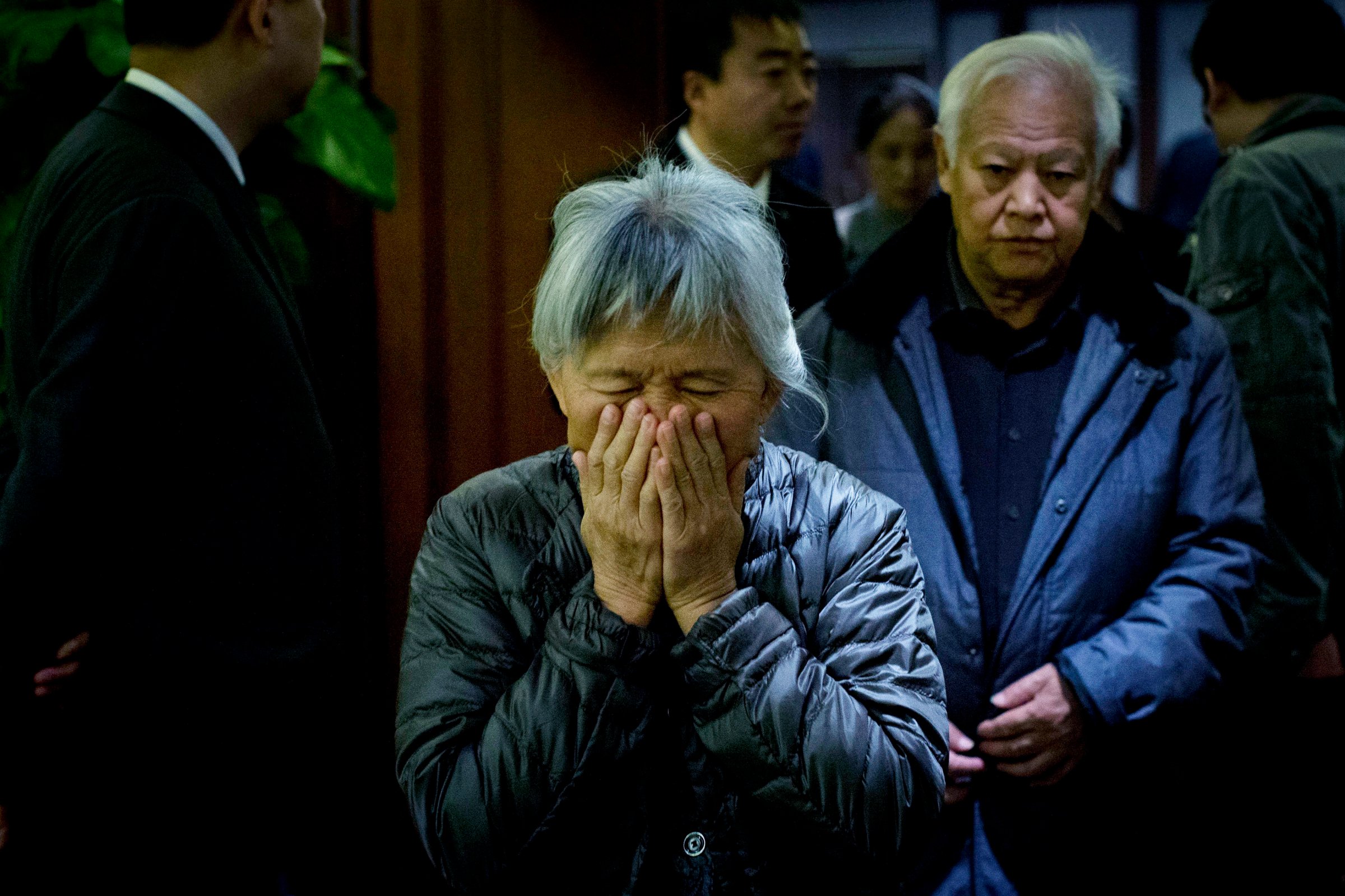
Grief stalks the halls of Beijing’s Metropark Lido Hotel. Families of the Chinese passengers aboard Malaysia Airlines Flight 370 have spent the last 12 days sleeping, eating and waiting here. They pass the hours scouring the Internet and watching television, desperate for information about their loved ones. They are exhausted and angry.
It is easy to spot them in hotel’s bright courtyards and corridors. Some flew here from distant provinces and barely speak Mandarin Chinese. They look lost in a hotel packed with foreign tourists, a place where Rimowa, a luxury luggage company, sells suitcases for 10,000 yuan ($1,600). Many are visibly grief-stricken, their eyes swollen, heads bowed. All are wary of speaking to outsiders. After all, one woman asked, “What is there left to say?”
Even as the dozens of countries — and what seems like the entire Internet — study the case, the friends and families of the missing feel blacked out. They are trapped in a Kafkaesque nightmare where each day brings a strange, disorienting, twist. It was a plane crash, then a terror plot, then a hijacking. Now, 12 days in, there is no real theory at all; it disappeared.
Tensions reached a boiling point Wednesday when a group of Chinese relatives of missing passengers criticized Malaysia’s handling of the search efforts during a news conference in Kuala Lumpur. Chaos broke out as Malaysian police roughed up journalists crowded around the group.
“I don’t care what your government does,” one woman shouted, CNN reports. “I just want my son back.”
Malaysia Airlines has given them three options: Stay in Beijing, fly to Kuala Lumpur, or go home. Some are applying for visas to travel to Malaysia should the plane be found nearby. Most are resigned to staying in China’s smoggy capital, where they can continue to push for information. “We will never leave without an answer,” said a man surnamed Ye, whose brother-in-law, Chen Jianshe, 58, is among the missing. “As long as we live, we will insist on answers.”
As frustration builds and answers continue to be few and far between, the prospect of conflict grows. There have already been minor scuffles between relatives and officials. The hotel is now shrouded in airport-like security, with metal detectors, x-ray machines for bags, and body searches at the door. Police roam the hallways.
On Monday, at least two U.S. law firms specializing in airplane crashes had representatives milling about the lobby. They said they were there to tell passengers “about their options,” and to raise the idea of putting together a case in U.S. courts. Depending on what happened to the plane, a trial in the U.S. could yield better compensation, they said. Some families listened, others walked away.
For now, most are focused on getting through the day. Mr. Ye, who is waiting for word of his brother-in-law, said the families’ pain was compounded by a lack of information about the search. “Malaysia Airlines has doubled the number of hostages,” he said. “It is like they have a rope around each family’s neck and they are pulling it bit, by bit. It gets tighter every day.”
More Must-Reads From TIME
- The 100 Most Influential People of 2024
- Coco Gauff Is Playing for Herself Now
- Scenes From Pro-Palestinian Encampments Across U.S. Universities
- 6 Compliments That Land Every Time
- If You're Dating Right Now , You're Brave: Column
- The AI That Could Heal a Divided Internet
- Fallout Is a Brilliant Model for the Future of Video Game Adaptations
- Want Weekly Recs on What to Watch, Read, and More? Sign Up for Worth Your Time
Write to Emily Rauhala/Beijing at emily_rauhala@timeasia.com